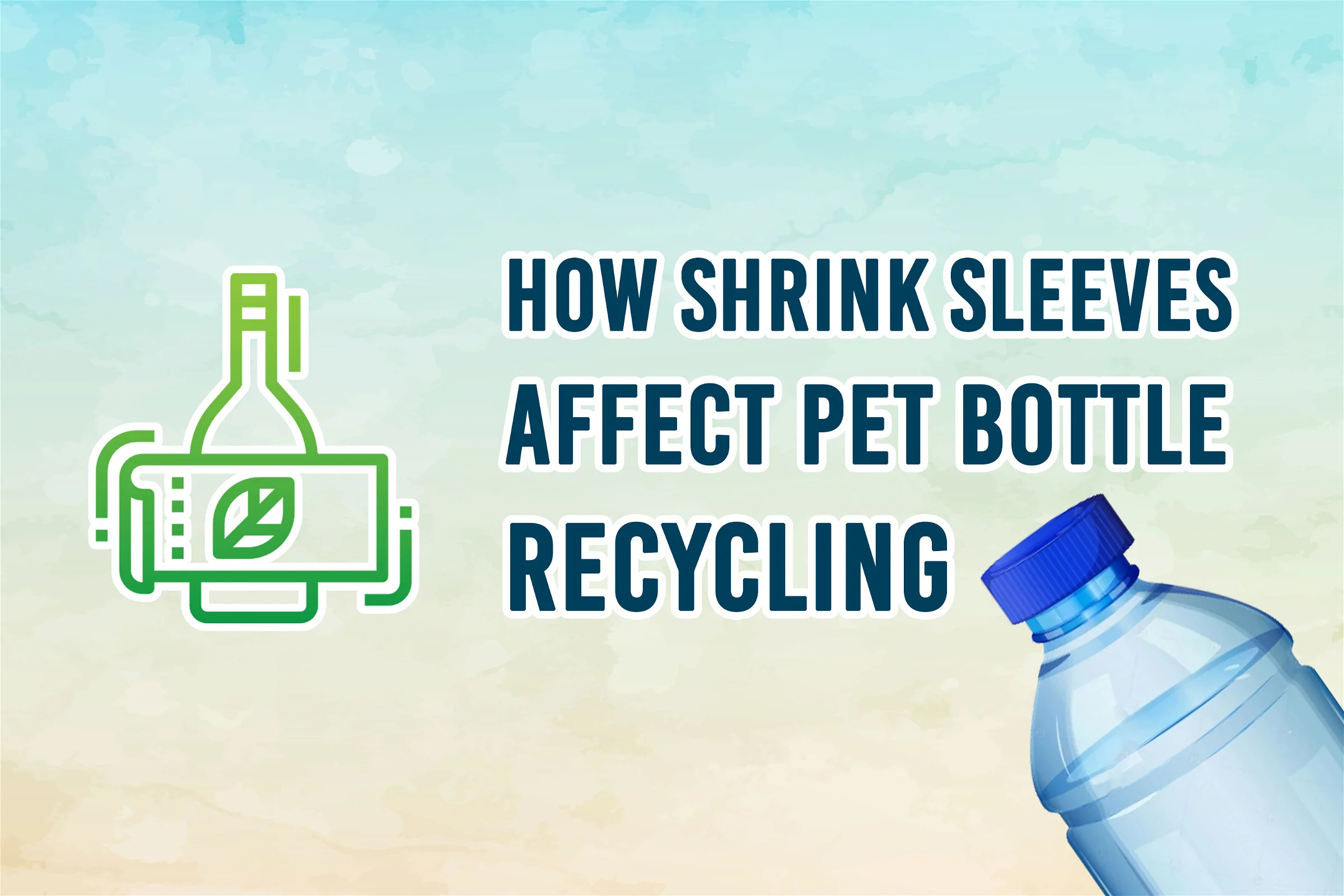How Shrink Sleeves Affect Pet Bottle Recycling

Every business that is a part of the packaging industry must know the importance of proper recycling, be it manufacturers, label suppliers, or consumer brands. And considering that a lot of different materials get used to creating products, it is crucial to understand how shrink sleeves affect their overall recyclability.
In this article, we will look at the effects of shrink sleeves when PET bottles and containers are attached to get recycled – along with how to better the recycling process using globally recognized options and alternatives.
Let’s dive in.
Compatibility of PVC, PETG, OPS, and PLA Film Substrate
Research shows shrink-label films made of PVC, PETG, PLA &OPS are incompatible with PET recycling.
For example, if we use PVC shrink label films and recycle the PET containers they are attached to, it causes black speck contamination, making the container non-recyclable.
Similarly, using PETG shrink label film, PLA or OPS shrink sleeves also render the containers incapable of recycling and cause complicated issues.
What’s The Solution?
- Before recycling PET bottles and containers, the sleeves attached to them need to be removed so that the films do not interfere with the recycling process.
- Another option is to use PET-based films. Once crystallized, they recycle along with the bottles to which they are attached.
- You can also opt for labels and films that leave the PET bottle and stay suspended in the water.
Printing Inks
During the wash step of the recycling process, the PET flake gets combined with the hot alkaline water. Usually, the ink used on the label discolors and contaminates it.
What’s The Solution?
- As soon as the ink leaves the shrink sleeve label, it must be carefully cleaned and filtered, not only from the PET flakes but also the wash water to avoid damages.
- With labels that float in the water, using inks with the right density is important to ensure the labels continue to stay afloat without any chances of descending.
- And that the inks stay on the label.
Growing Awareness About the Importance of Proper Recycling
Over the last couple of years, more businesses have become sensitized about finding ways to recycle PET bottles and containers correctly. As well as ensuring that the labels do not interfere or delay their proper recycling.
For example, de-seaming adhesives are making it simpler, easier, and faster to get the label off the container before it gets washed during recycling.
Innovative label films are coming up in the market to create more sophisticated shrink labels. And certain printing ink formulations no longer jeopardize PET’s recyclability.
Machines such as De-Labelers are speeding up the act of detaching labels from PET bottles at the initial stages of recycling. And much more.
So, it is safe to say that in the coming years, more advancement in PET recycling can be expected throughout the world.
Model Specifications – Shrink Sleeve Labels on PET Containers
Full Compatibility: Sleeves with density <1 g/cm³, and with a size that does not hinder the recognition of the underlying PET-polymer.; PET (not PETG) sleeves with washable inks.
LIMITED COMPATIBILITY: Twin-perforated sleeves for easy removal.
LOW COMPATIBILITY: Sleeves that hinder the recognition of the underlying PET-polymer (e.g., too large, metalized, heavily inked);
Sleeves with density >1 g/cm³ (e.g.,PVC; PS; PET; PETG); Foamed PETG sleeves (even with density <1 g/cm³);
PETG sleeves with non-washable inks.
CLOSING THOUGHTS
As the world moves towards responsible recycling and sustainability, it is the duty of every business in the packaging supply chain to contribute to this endeavor by making the right shift.
There should be a greater focus on sensitizing businesses and consumers about recyclability guidelines and label removal before disposing of PET bottles. And with time, brands should look towards collaborating with label suppliers that offer recycling-compatible sleeves for their products.
A little effort in the right direction can make a big difference.
Would you like to get an expert opinion on the best recyclable packaging solutions for your products? Then feel free to book a discovery call with me at www.chetan-jain.com.






